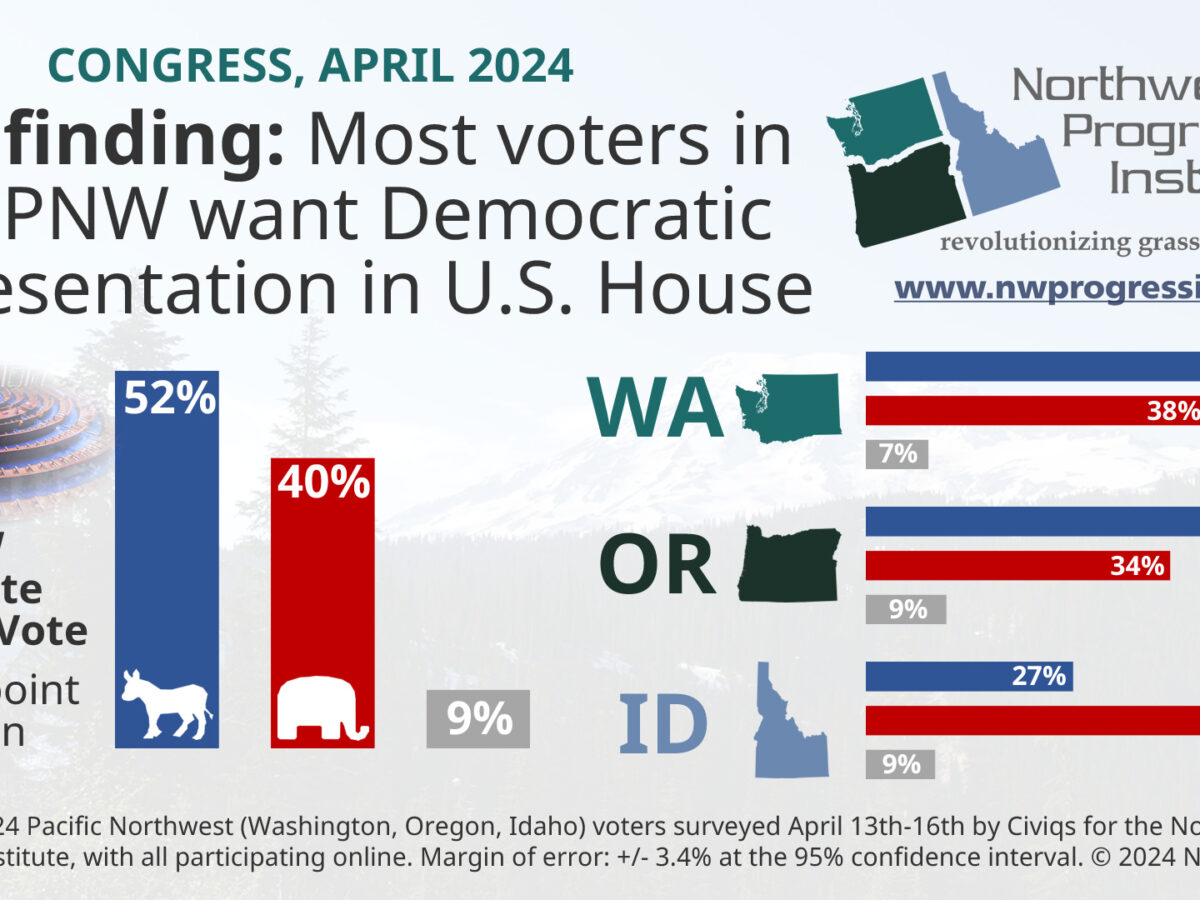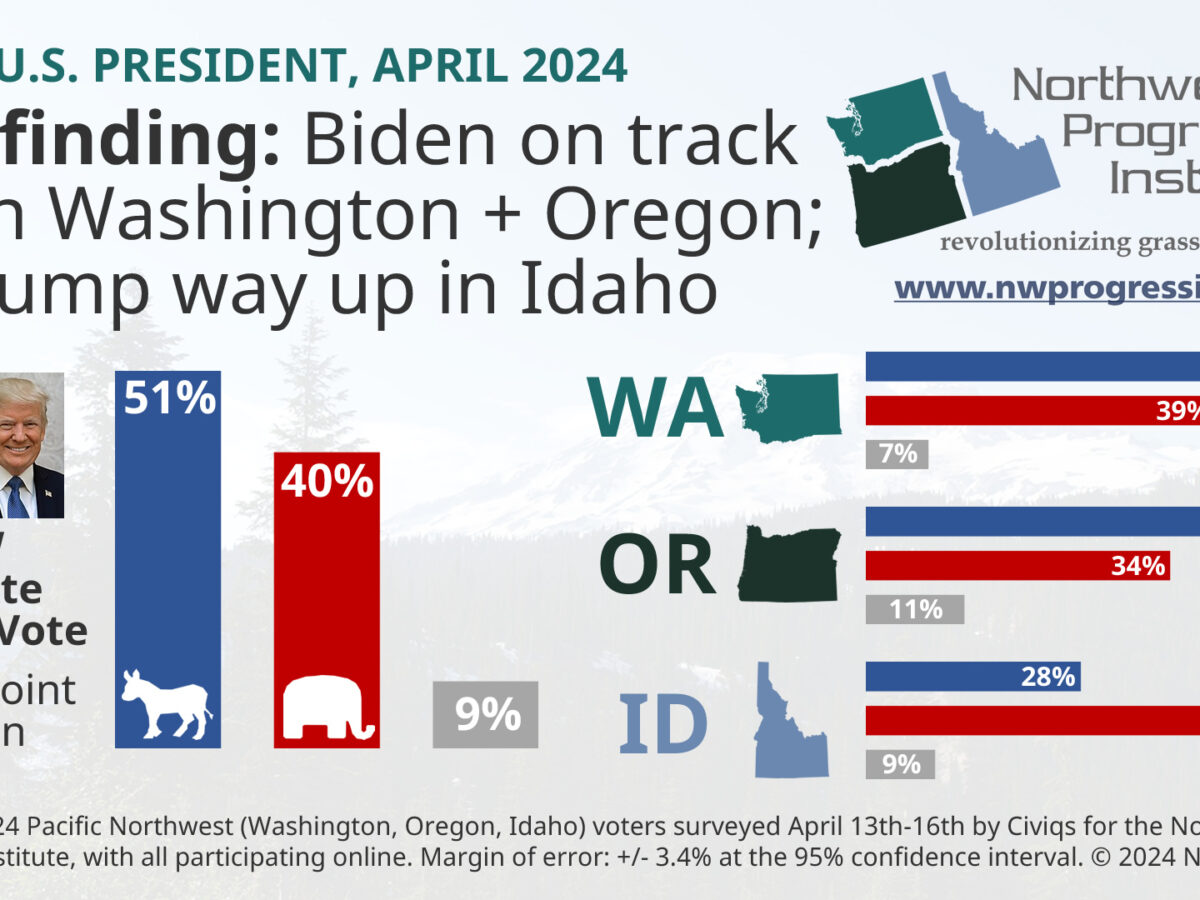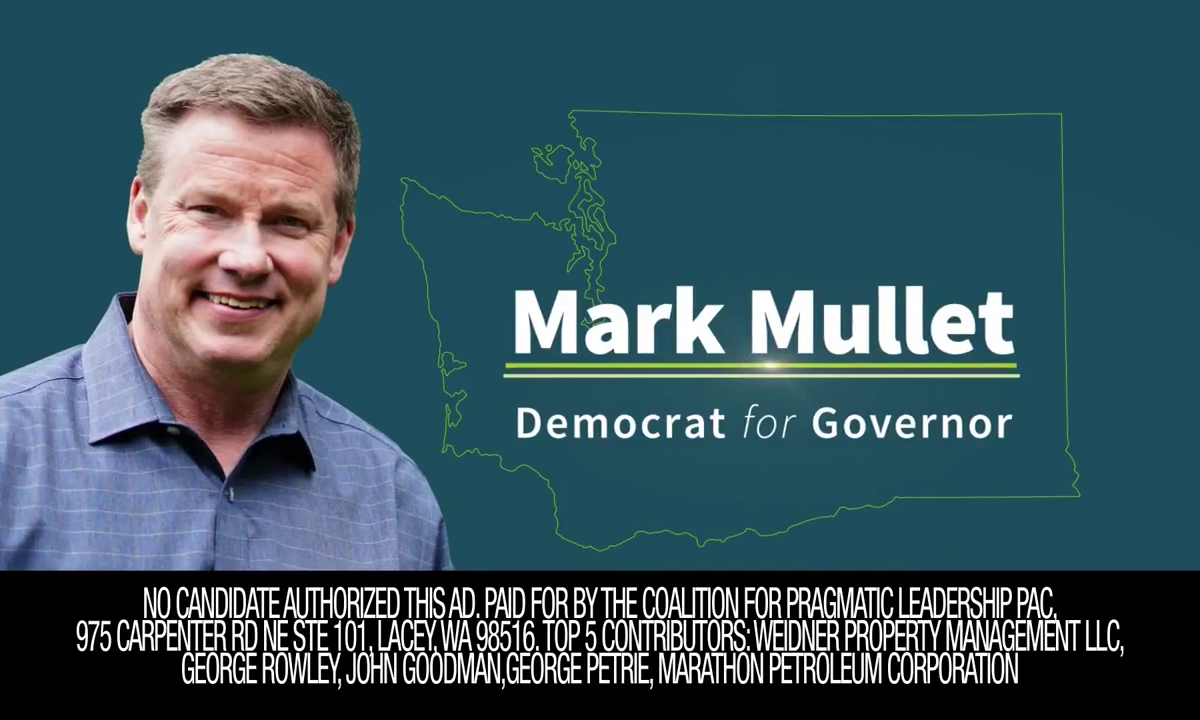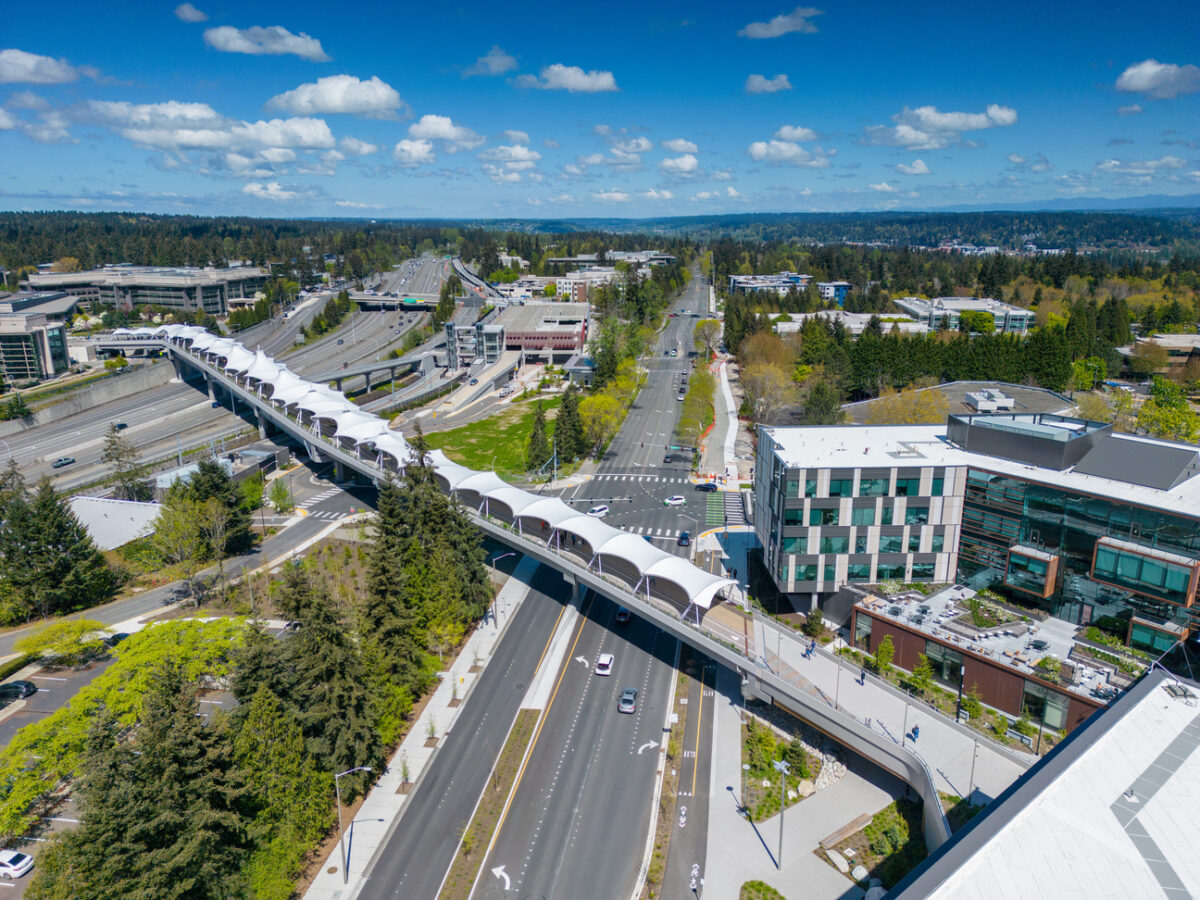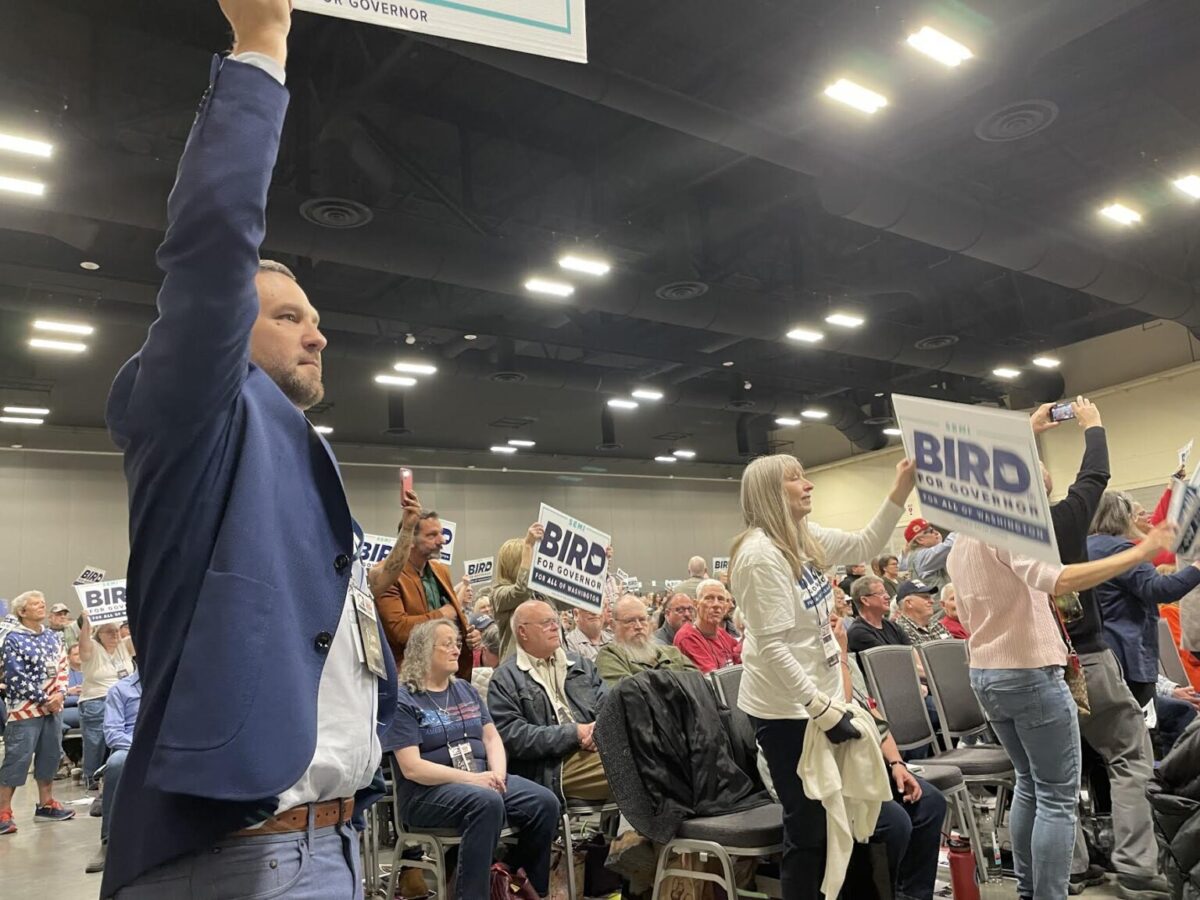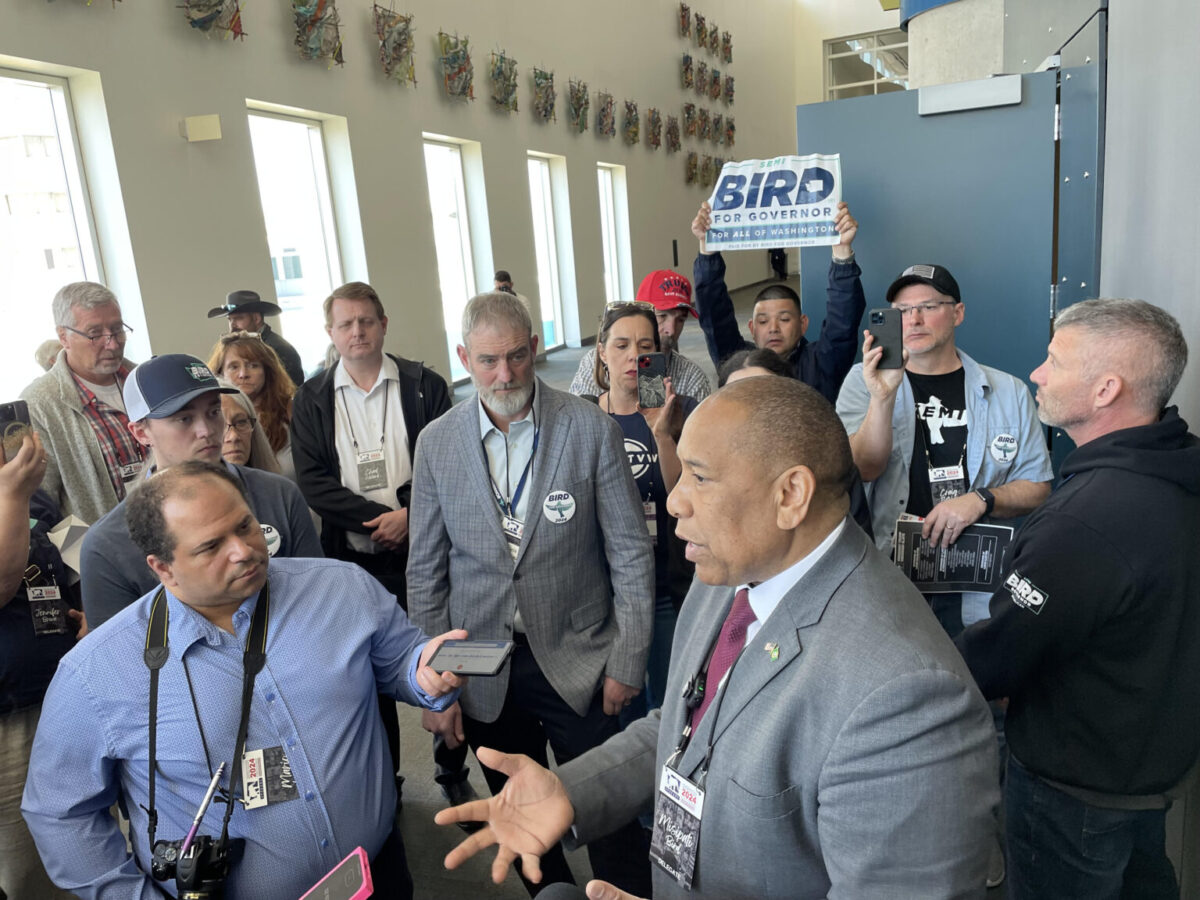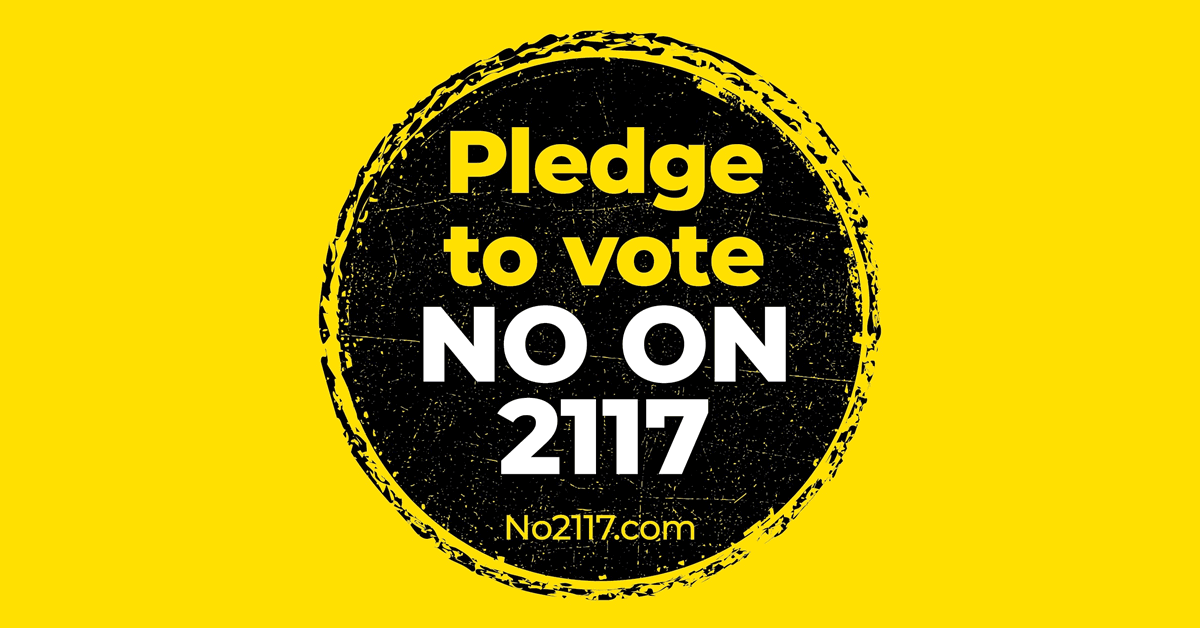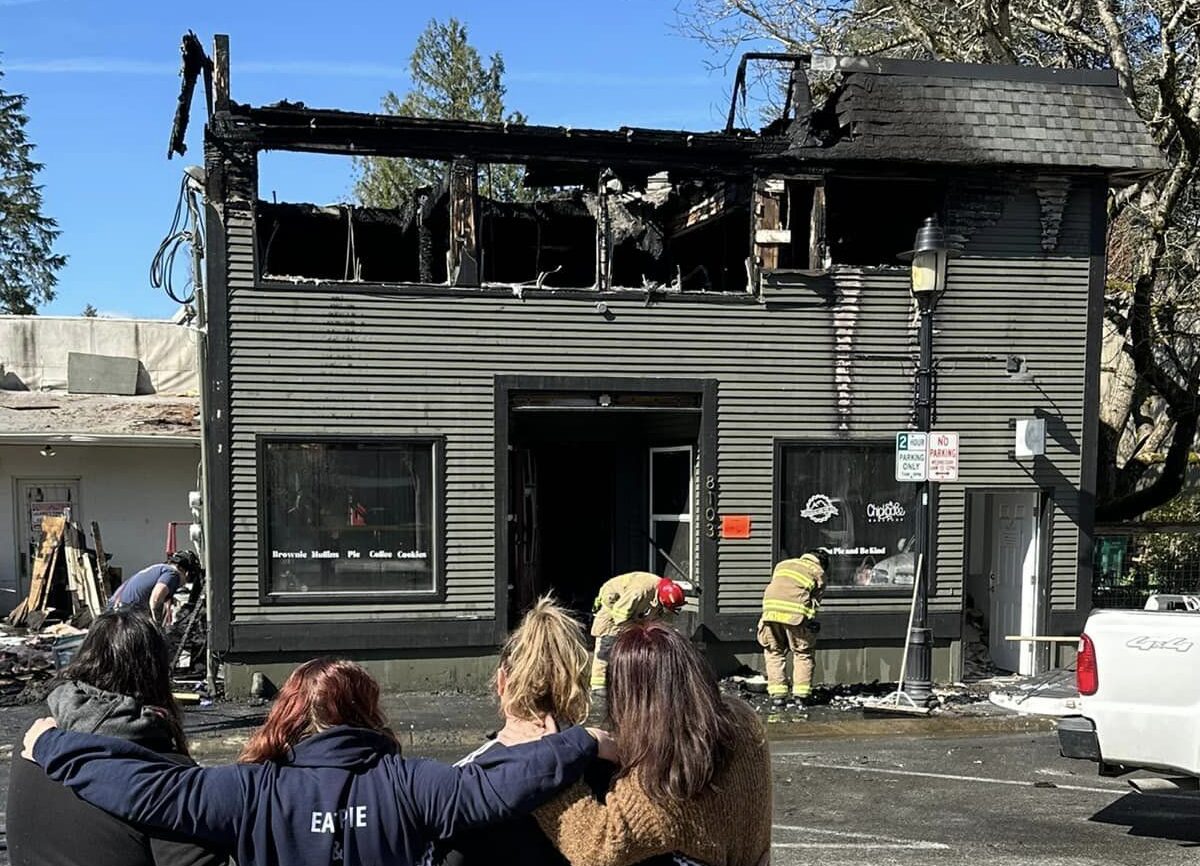52% of 1,012 Washington, Oregon, and Idaho voters surveyed by Civiqs earlier this month for NPI said they’d vote for the Democratic candidate in their congressional district if the election were being held now, while 40% said they’d vote for the Republican candidate. 8% were not sure.
President Joe Biden is on track for victory in Washington and Oregon this fall, while Donald Trump has a big lead in Idaho
Unsurprisingly, the Democratic Party’s presumptive 2024 nominee will likely have the support of a majority of voters in the Pacific Northwest this autumn and will probably carry two out of the region’s three states.
U.S. Senate sends bipartisan lethal aid appropriations bill to President Joe Biden
The bill will provide tens of billions of dollars in security assistance to Ukraine, Israel, and Taiwan. It also contains a provision aimed at forcing China-based ByteDance to divest TikTok.
Corporate backers of Mark Mullet launch an independent expenditure to boost his flagging campaign
Although the ad looks at first glance like it was created by Mullet’s campaign, it is funded by Weidner Property Management, Marathon Petroleum, and wealthy men who don’t want Bob Ferguson to become Washington’s next governor.
City of Redmond, Microsoft open new bridge over State Route 520 for pedestrians and bicyclists
The new bridge, a quarter of a mile long, provides a safe way to get from one side of the Microsoft campus to the other. It directly connects to the new Redmond Technology Station, one of eight Line 2 light rail stops.
Happy Earth Day 2024!
Read a roundup of Earth Day news and events that we’ve been tracking.
Here’s who the Republican Party endorsed for statewide office at its 2024 convention in Spokane
On April 20th, the Washington State Republican Party endorsed candidates in seven out of ten executive and federal races that will be on the August and November 2024 statewide ballot. Read the list of who got the party’s backing.
Washington State Republican Party endorses Semi Bird’s gubernatorial candidacy
The endorsement, which came after Dave Reichert withdrew from consideration and denounced the party’s 2024 convention, isn’t likely to do much to help Bird’s insurgent campaign — unless Bird can leverage it as a springboard to secure an endorsement from Donald Trump.
John Carlson urges KVI listeners to “hit back” after NO on I‑2117 announces it has already raised over $11 million in early funds
The coalition working to defend the Climate Commitment Act has been raking in money and endorsements. That has right wing talk show hosts like John Carlson worried and exhorting listeners to open their wallets.
NO on I‑2117 launches new website and video urging Washingtonians to defend the Climate Commitment Act
“If I‑2117 passes, it would allow more pollution and shift the burden of paying for the impacts of pollution onto communities, workers, and families — while cutting investments in clean air and water, transportation, wildfire prevention, and a lot more,” the coalition says.
One-on-one with Hilary Franz: Why Washington’s Commissioner of Public Lands wants to succeed Derek Kilmer in Congress
Franz said she would pursue four main priorities if elected: more affordable housing, greater economic development, strengthening environmental protection, and reversing the contraction of of reproductive rights.
Is Dave Reichert up, or is he down? According to his campaign, the answer is yes
The Republican’s campaign is employing contradictory messaging in an effort to get backers to open their wallets.
Help Chickadee Bakeshop and other Snoqualmie businesses recover from a devastating fire
While no one was hurt in the fire, each of these women-owned small businesses faces a long road to recovery and they need all of the help that they can get.
Beyond the game: Lessons from the cultural parallels between women’s college basketball and American politics
Read Erin Jones’ perspective on the media and social coverage of the 2024 NCAA women’s championship, and why it should serve as a reminder that our country needs more community engagement and informed civic participation.

